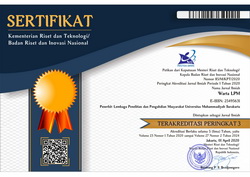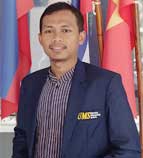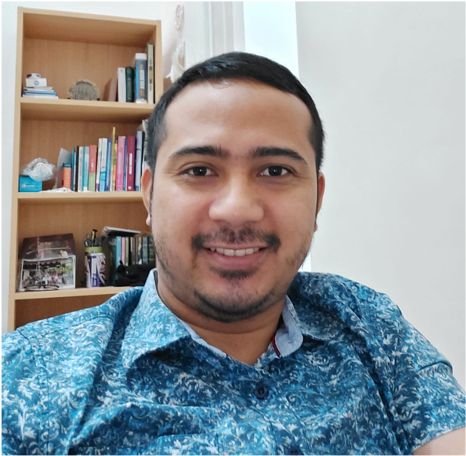The Development Concept of Organic Village Tourism in Karanganyar
Keywords:
organic village tourism, concept, KaranganyarAbstract
The ratification of Law No. 6 of 2014 concerning the development of rural environments has had a significant impact on the development of villages in Indonesia, among others, through the concept of a tourist village. Several villages have succeeded in developing the concept of tourism in a rural environment in an authentic and sustainable manner, while on the other hand, several villages seem to have followed the existing trend without carefully looking at the local environmental context. This paper presents the semi research community service activity carried out to understand better this phenomenon in Kampung Ngampel, Gentungan Village, Mojogedang District, Karanganyar Regency which is currently developing the concept of Organic Village Tourism. The activity is carried out with a focus on two things: developing the initial concept of tourism areas and training in tourism area management. This service activity was carried out with the full support of the community and resulted in several ideas. The final results of the training activities provide a clearer picture to the community regarding contextual and sustainable tourism village management.
Downloads
References
Abuzah, F. (2019). Pasar Paringan, Ikon Baru Kabupaten Temanggung. Retrieved March 24, 2020, from Bekraf (Badan Ekonomi Kreatif Indonesia) website: https://www.bekraf.go.id/berita/page/8/pasar-papringan-ikon-baru-kabupaten-temanggung
Desa-Kebon-Agung. (2019). Desa Wisata Kebon Agung: Wisata Pertanian, Kebudayaan, dan Pendidikan di Bantul, DI Yogyakarta. Retrieved February 12, 2019, from http://desawisatakebonagung.com/
Dewi, M., Fandeli, C., & Baiquni, M. (2013). Pengembangan Desa Wisata Berbasis Partisipasi Masyarakat Lokal di Desa Wisata Jatiluwih, Tabanan, Bali. Kawistara, 3(2), 131–134.
Kementrian-Kebudayaan-dan-Pariwisata. (2010). Peraturan Menteri Kebudayaan dan Pariwisata No. PM.26/UM.001/MKP/2010 tentang Pedoman Umum Program Nasional Pemberdayaan Masyarakat (PNPM) Mandiri Pariwisata Melalui Desa Wisata. Jakarta.
Kementrian-Pariwisata. (2016). Peraturan Menteri Pariwisata RI No. 14 Tahun 2016 tentang Pedoman Destinasi Pariwisata Berkelanjutan. Jakarta.
Maulidin, E. (2019). Padha Resort: Nature and Human Side by Side - Studio Perancangan Arsitektur (STUPA 6). Universitas Muhammadiyah Surakarta.
Priasukmana, S., & Mulyadin, R. (2001). Pembangunan Desa Wisata: Pelaksanaan Undang-undang Otonomi Daerah. Info Sosial Ekonomi, 2(1), 37–44.
Downloads
Submitted
Published
How to Cite
Issue
Section
License
Copyright (c) 2022 Warta LPM

This work is licensed under a Creative Commons Attribution 4.0 International License.














